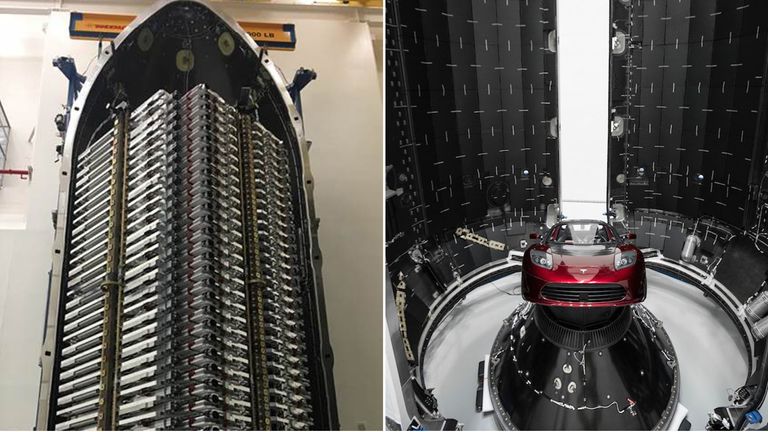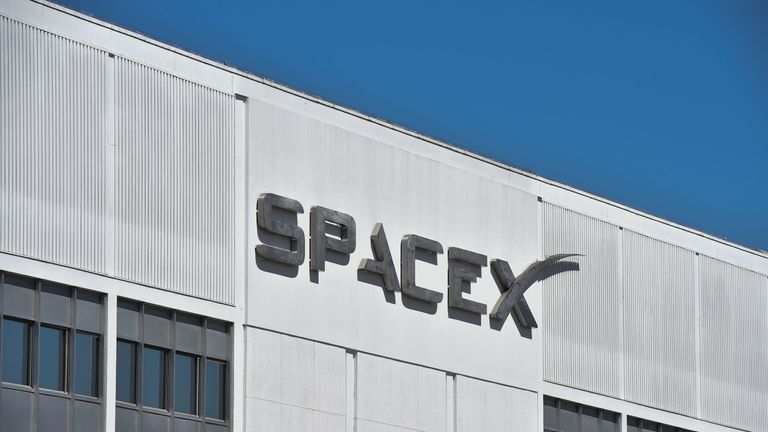SpaceX postpones Starlink satellite launch amid heavy winds
Another window to launch the private company's constellation of satellites will open at 2.30am on Friday morning.
Thursday 16 May 2019 10:11, UK
SpaceX has postponed its first launch of the Starlink constellation of satellites due to safety concerns over heavy winds.
Another window for the launch of the Falcon 9 rocket will open at 2.30am on Friday morning UK time.
The company expects the 60 satellites included in the launch to orbit the Earth in a constellation which provides constant internet coverage across the entirety of the planet.
According to SpaceX CEO Elon Musk, the Starlink mission will be the heaviest which the firm has ever launched - weighing18.5 tons, or just over 16,700kg.
It will launch on a reusable Falcon 9 rocket which has previously launched two satellites into orbit before returning to Earth and landing safely.
Mr Musk added: "If all goes well, each launch of 60 satellites will generate more power than [the International] Space Station and deliver 1 terabit of bandwidth to Earth."
Each of the Starlink satellites weighs 227kg and will be launched 440km above the Earth, before powering themselves an addition 110km away from the planet.
The 60 satellites launched in this window will be supported by more in another six planned launches for a constellation totalling around 400 satellites, before the Starlink network begins its initial activation.
According to Mr Musk "significant coverage" will be provided after 12 more launches.
Gwynne Shotwell, SpaceX's president and chief operating officer, has previously said the company will not start launching satellites for actual service until later this year.
Depending on how the launch goes, Ms Shotwell said SpaceX could send between two and six more batches of satellites this year for the Starlink broadband constellation.
There are a number of satellite constellation projects in development, although concerns have been raised both about the space for these constellations orbiting around the Earth and their cost efficiency.
Other constellation projects are being developed by companies such as Amazon, OneWeb, Kepler, Telesat, and Leosat.




